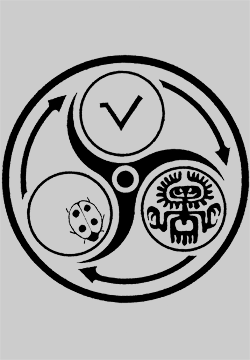Lore of a People
A culture is defined by the stories it tells and the beliefs it holds about itself. In the English speaking world, there’s a rich oral tradition of teaching with story telling. These stories become our collective beliefs, traditions, and customs, and they are passed down from parent to child, teacher to student, elders to youth for generations. The collection of these socially particular “truths” about the world allow us to define who we are as distinct from others. Often the stories of who we are contain advice for daily life along with the grand answers to universal questions. When these stories pertain to traditional values regarding how to live, local customs, or even songs and riddles, we say they are “folklore.” In 1964, Dr. James T. Callow, then professor of English at the University of Detroit, was very interested in folklore.
Although there has always been a tradition of passing along the folklore of this country orally, Dr. Callow realized the value of recording it in an archive. The value here is not just with the subject and advice offered, but with the process of continuing to hand down through generations the ideas and suggestions of those who long ago determined the need for it. The meaning of saying such as, “loose lips sink ships,” for example, may be lost to those who continue to use it, the urge to continue to pass it along remains. Understanding this form of communication, of how we interact with our fellow human beings, is where the value lies. The urge is to instruct, assist, and offer benefit, and this is a very human activity.
So, in 1964, Dr. Callow and his friend Frank Paulsen, created the Detroit Folklore Archive. For the thirty years between its founding and Dr. Callow’s retirement, the archive has grown to be one of the finest of its type in the country. In the introduction to this archive, we learn that in 1972, Dr. Callow computerized the collection using a “punch card system.” And in his 1992 annual report, Dr. Callow says, “I have motivated my students to take pains with their collecting because it is destined to be preserved for years to come. Nor will it lie gathering dust. Every time what we retrieve from this database (e.g., some of the proverbs, riddles, stories, songs, customs, and beliefs that these students gathered) are read and appreciated, it’s a way of perpetuating one’s own traditions, and those of one’s family and friends as well.”
Spend some time in this archive and you may be amazed at how much of it you have already been taught in childhood. This archive is a great place to find the customs and traditions of our daily world that we’ve taken for granted over the years since we were first taught these stories of ourselves. It’s fun to just browse through the subjects or keyword search feature until you find something that catches your fancy.

